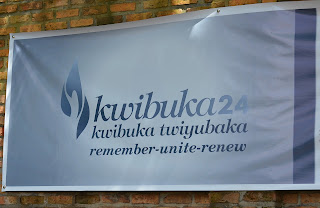 Having said that, the fishmonger was very kind to the flock of felines always gathered around his door. He and they have reached an agreement - they don't enter the shop until summoned in to accept the piscean scraps he saved for them, and he made sure there was enough for the gang.
Having said that, the fishmonger was very kind to the flock of felines always gathered around his door. He and they have reached an agreement - they don't enter the shop until summoned in to accept the piscean scraps he saved for them, and he made sure there was enough for the gang.
So the Lamu cats are on a good wicket and shown kindliness. Donkeys, however, are clearly ranked somewhat lower on the affection scale and are regarded as beasts of burden.
 There is something inherently sad about a donkey. AA Milne was spot on with poor, depressed Eeyore. Maybe it has something to do with the donkey design - dainty hooves, oversized ears, liquid eyes and a bony spine emblazoned with that cross...pathos personified.
There is something inherently sad about a donkey. AA Milne was spot on with poor, depressed Eeyore. Maybe it has something to do with the donkey design - dainty hooves, oversized ears, liquid eyes and a bony spine emblazoned with that cross...pathos personified.
In Lamu town, unfettered and resting donkeys sought out every available scrap of shade and gently dozed, enjoying a few moments of peace and rest, or nibbled hopefully at bits and pieces of litter. The rest stood patiently while enormous panniers were heavily loaded with many kilogrammes of coral blocks, cement, grain, even people before being slapped into motion under these mighty burdens.
My frequent donkey photographic stops caused plenty of stares and often a conversation with passers-by. "It's a donkey, she's pregnant," was one memorable remark about a poor jenny whose bulging sides heaved in her efforts to draw breath into lungs obviously squashed beneath a soon-to-arrive foal. Donkeys lining the streets are such an integral part of daily life the locals don't notice them at all and they were pretty gobsmacked that someone would photograph them. A lot.
With this casual disinterest in the beasts so obvious, it was really interesting to watch a donkey break for freedom along the seafront one morning. A mad clatter of 16 hooves rang out on the paving stones, much louder than the yells of the young lad they were escaping from. To my complete astonishment, pedestrians in the path of the donkey dash put down their own parcels and stood in the way, arms outstretched. One man successfully grabbed the rope halter of one and calmly "tshush, tshush-ed" his captive while another pointed out the jetty access ramp that the other donkeys had also noticed and were veering towards. More helpful wranglers on the jetty positioned themselves in the way making frantic grabs for a bit of donkey and within minutes the poor animals were prisoners once more.
A telling incident about community bonding and helpfulness without pause for thought and another lesson from Africa.
























